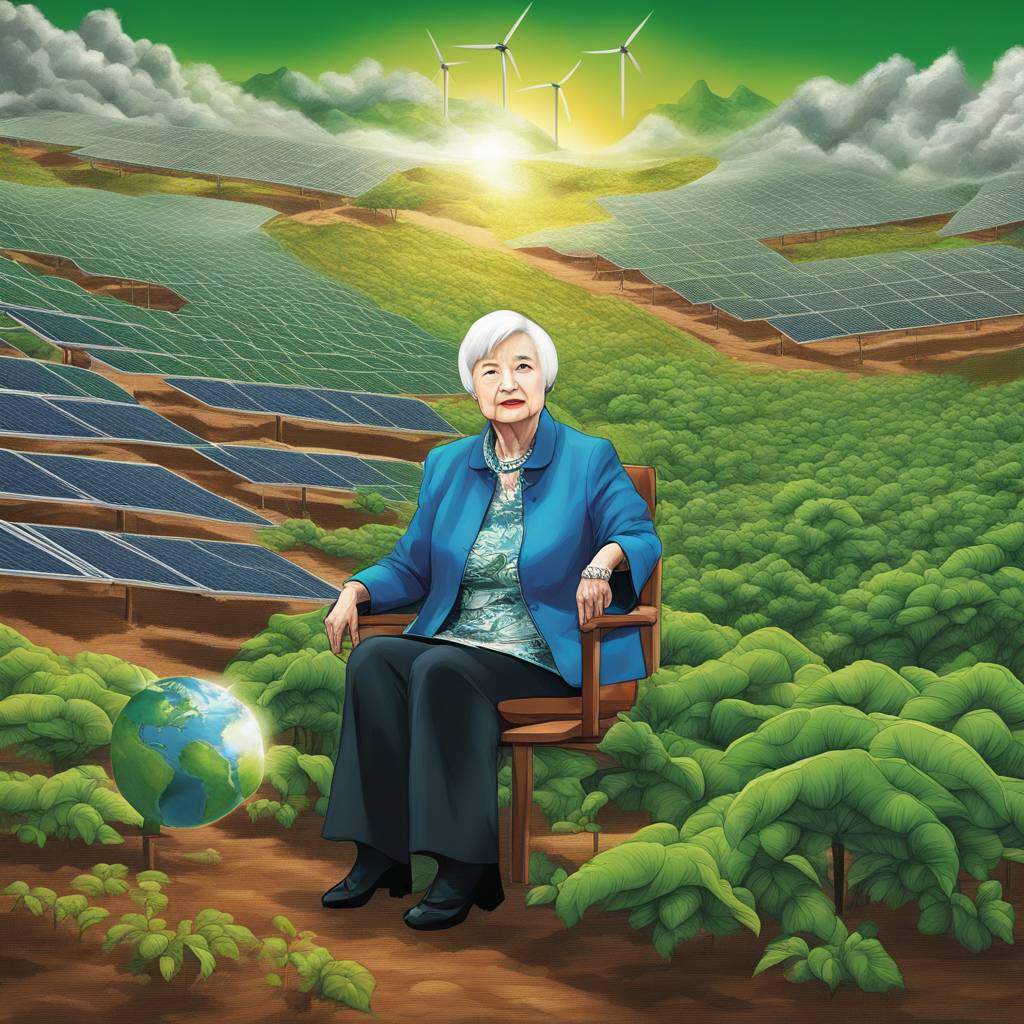Treasury Secretary Janet Yellen has spoken out against China’s increased production in solar energy, electric vehicles, and lithium-ion batteries, calling it unfair competition that distorts global prices and hurts American workers and firms. Yellen plans to address these concerns with her Chinese counterparts during her upcoming trip to China, emphasizing the risks that Beijing’s increased production of green energy poses to both the Chinese economy and the global market. China currently holds a dominant position in the electric vehicle and battery industries, with the International Energy Agency noting that China accounted for 60% of global electric car sales in 2023.
Yellen’s remarks were delivered at Suniva, a solar cell manufacturing facility in Georgia that closed in 2017 due to the influx of cheap imports, but is now reopening thanks in part to incentives provided by the Inflation Reduction Act. The reopening of Suniva serves as a cautionary tale of oversaturation in markets by Chinese products and reflects the strained economic relations between the U.S. and China, which are further complicated by trade disputes and security concerns. China recently filed a complaint against the U.S. at the World Trade Organization over alleged discriminatory requirements for electric vehicle subsidies, prompting a response from U.S. Trade Representative Katherine Tai citing the need for a fair competition.
Yellen highlighted the impact of Chinese government support on industries like steel and aluminum, which led to overinvestment and excess capacity resulting in depressed prices and threatened industry contraction in other parts of the world. These concerns are echoed by government counterparts in industrialized and emerging markets, as well as the global business community. In contrast, Chinese leader Xi Jinping has called for closer trade ties with the U.S. and emphasized the mutually beneficial economic relationship between the two largest economies despite ongoing disputes over tariffs, trade barriers, and intellectual property theft.
The increase in Chinese production of green energy poses challenges to the global market, particularly in industries like electric vehicles where China has a dominant position. Yellen’s visit to China will focus on discussing these issues with an aim to address the risks that such increased production poses to both the Chinese economy and the global market. The reopening of Suniva serves as an example of the impact of oversaturation of markets by Chinese products and reflects the strained economic relations between the U.S. and China. The filing of a complaint by China against the U.S. at the World Trade Organization highlights the tension between the two countries over trade practices and subsidies in the green energy industry.
Yellen’s remarks underscore the concerns about unfair competition and the use of non-market policies by China, especially in industries like steel and aluminum where overinvestment and excess capacity have led to challenges for the global market. These concerns are shared by government counterparts in various countries and the global business community, reflecting the widespread impact of Chinese production on the world economy. Despite these challenges, Chinese leader Xi Jinping has called for closer trade ties with the U.S. and emphasized the mutual economic benefits of the two countries’ relationship, signaling a desire for improved relations despite ongoing disputes and tensions.


